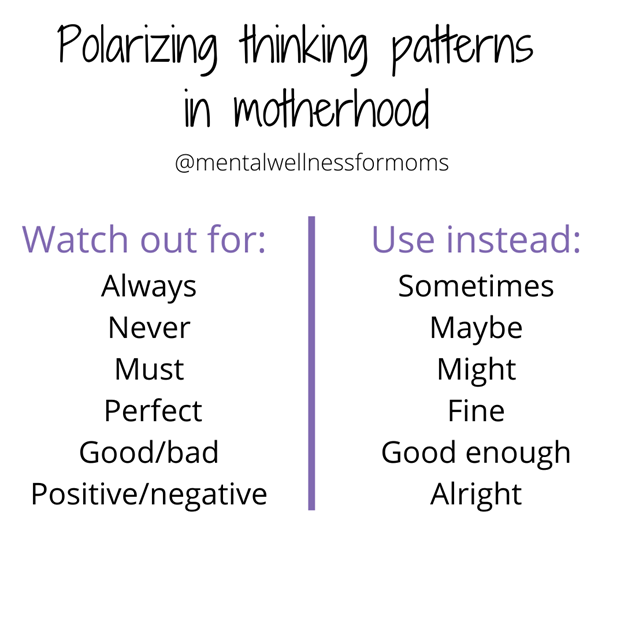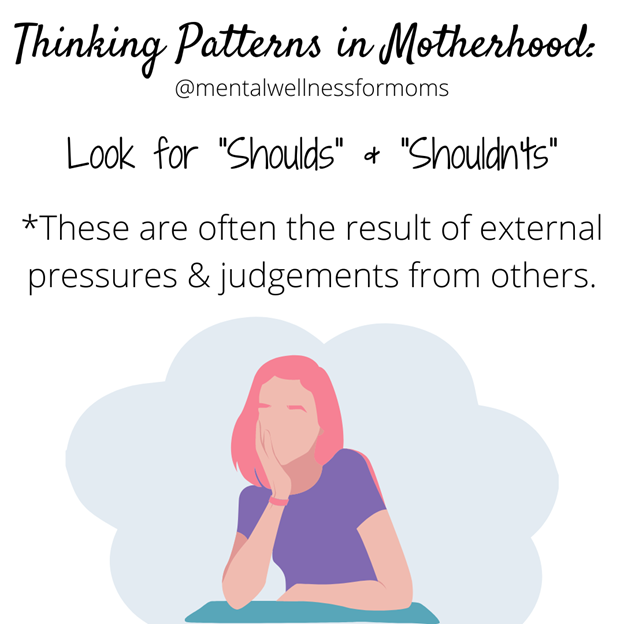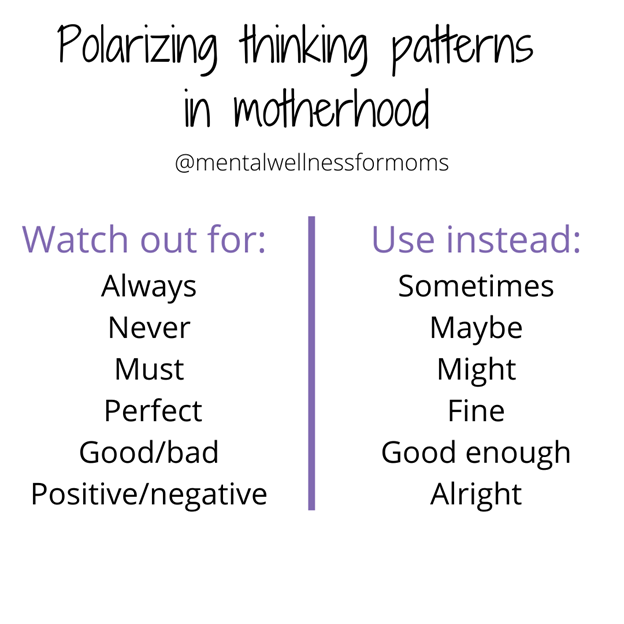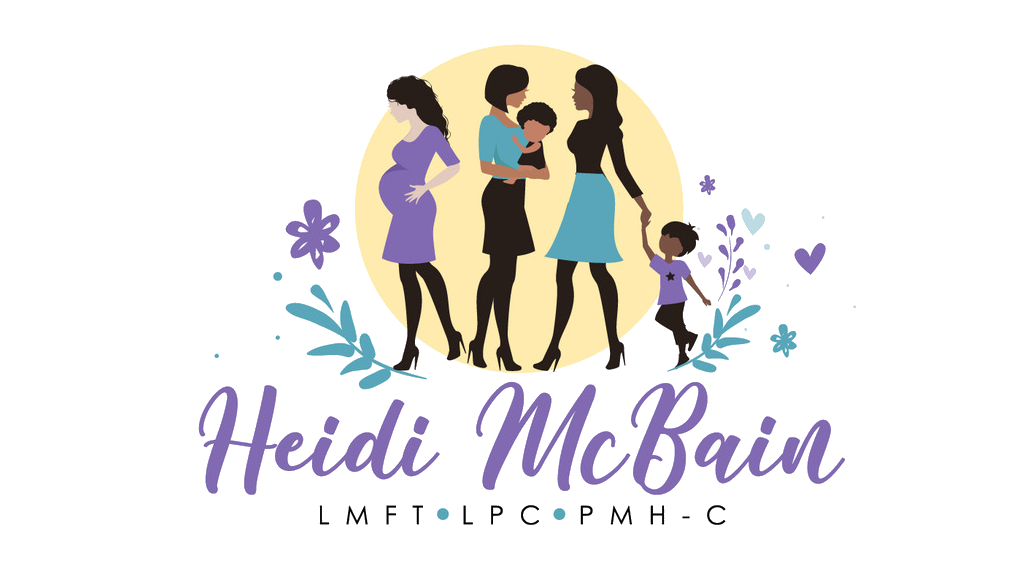

Expression is the opposite of depression.
-Dr. Edith Eger
Extreme thinking patterns can be particularly hard to deal with during postpartum. They can be very polarizing because they often involve black and white thinking such as, “I must have a spotless house, otherwise I’m a bad mom” or “I must cook a homemade dinner every night, otherwise I’m a bad wife.” These types of statements can hit at a very deep level, and often bring in feelings of mom guilt and mom shame.
Some words to watch out for with black and white thinking:
- Always
- Never
- Must
- Perfect
- Good versus bad
- Positive versus negative
Instead try to use softer, less polarizing words:
- Sometimes
- Maybe
- Might
- Fine (instead of perfect)
- Good enough
- Alright
Another thinking pattern to keep a lookout for includes the word “should.” Shoulds are often the result of external pressures that can cause you to feel like you must do a certain thing or be a certain way, otherwise you’ll be judged harshly by others. You can start to soften this form of thinking by quieting down the external noise and honing in on how you truly feel internally. Ask yourself these reflection questions:
- What’s my deeper truth here?
- If I were to fully trust myself, what would I do in this situation?
A final thinking pattern to look for is the “buts,” and phrases like, “I love you, but I hate when you… (Fill in the blank here)” Often, what comes before the “but” is null because what comes after it is the new focus. So, the first part ends up being discounted by the listener. A great way to soften this language is to use “and” instead of “but.” A new phrase would sound something like, “ I love you and find your behavior frustrating at times.” This new language frees up space to be able to feel two opposing things (or more!) at the same time. Plus, this can open up conversations instead of leaving people on the defensive.



